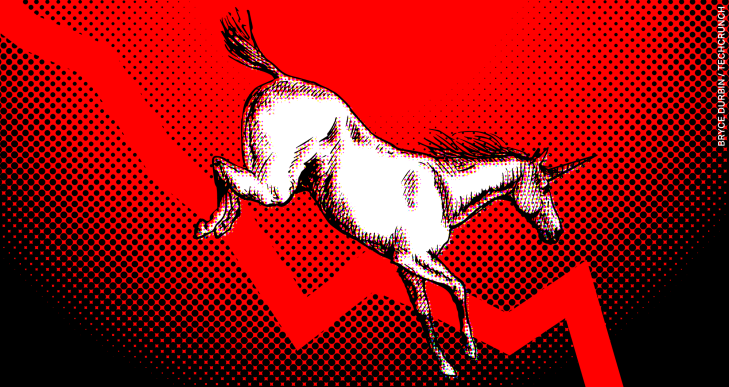You’d be excused for feeling that mid-2019 was in a different decade as far as venture-backed IPOs go.
Last year saw a number of successful flotations of venture-backed technology and technology-enabled companies, and most performed well after they began trading. But despite some early success, a number of the most famous 2019 IPOs have seen their valuations decline rapidly in ensuing quarters.
In some cases, once richly valued public unicorns are off more than twice the market’s recent declines, have given up all their gains earned as public companies, or fallen under their final private market valuations. It’s a stunning reversal for several of the most-lauded companies to come out of the venture capital machine in a decade.
All this hangs over a number of companies itching to go public themselves. Airbnb, as we unpacked this morning, faces an uncertain timing and pricing gauntlet to meet its 2020 public debut promise. Asana, which filed privately, and DoorDash are seeing their public comps punished ahead of their own offerings.
To understand this dramatic shift in the market, we’re going to look at the performance of four companies paired into two segments of the tech market: on-demand (Lyft and Uber) and SaaS (Slack and Crowdstrike). All went public inside the last year, making their 52-week highs (a traditional stock market measuring stick) their all-time highs.
Measuring from those high-water marks, here’s how far our four companies have fallen:
- Lyft, 52 week high to current price: -80.43%
- Uber, 52 week high to current price: -63.89%
- CrowdStrike, 52 week high to current price: -61.24%
- Slack, 52 week high to current price: -56.29%
On the market cap front, things are more mixed. Slack is worth $10.2 billion today, according to Google Finance. That’s more than its final private valuation of around $7.1 billion. Uber is worth $29.3 billion today, far under its final private valuation, though the gap widens depending on how you count. Uber was worth $70 billion, give or take, in early 2018 for example. Lyft is worth $5.3 billion today, desperately lower than its mid-2018 private valuation of more than $15 billion. CrowdStrike, however, is worth $8.4 billion today, far more than its final private valuation of $3 billion.
So what we can see is sharp declines for all the firms, with the software companies holding fast above their final private valuations; meanwhile, the more tech-enabled Uber and Lyft are taking more damage both as public companies and in relation to their final private valuations.
I’d hazard that this is more of the tech/tech-enabled split we’ve been exploring since Casper and One Medical went public earlier this year.
But what matters for us today isn’t merely yet another bad trading day that is attacking the valuations of recent IPOs of venture-backed companies. Instead, it’s the impact that these companies’ declines have on the pricing hopes and timing dreams of other IPOs. The current unicorn exit market is stuck until things clear up globally, but even when they do, a lot of companies that had hoped to go public this year may be stuck staring down the barrel of public comps that aren’t worth nearly what they had hoped—pushing some debuts even further into the future.
